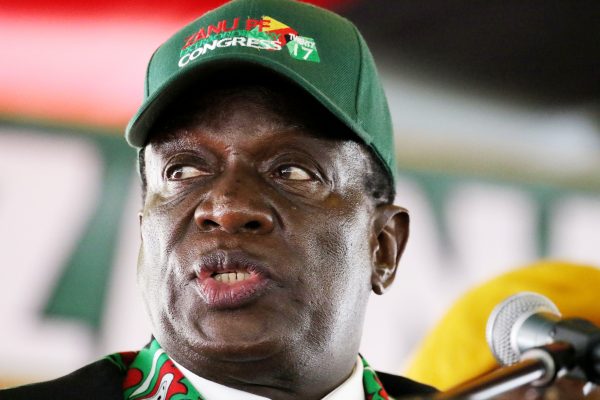
BY MISHMA CHAKANYUKA
Powerspeed Electrical Limited chairman Simba Makoni has bemoaned the economic uncertainty in the country saying chances of a turnaround are diminishing.
Makoni, a former Finance minister, was commenting on Powerspeed’s financial results for the year ended September 30, 2019, where he called for a sound macro-economic policy framework and regulatory regime to oil the economy.
“It is difficult to tell where our country is going,” he said. “Statements of, and actions by our leaders do not seem to reflect the reality of everyday experiences of citizens.
“The country yearns for a coherent, credible, macro-economic policy framework, and regulatory regime, within which economic agents can operate and plan for the future.”
President Emmerson Mnangagwa, who took over from the late former president Robert Mugabe following a military coup in November 2017, is struggling to breathe life into the economy.
In 2019, currency reforms that saw the government ditching the multicurrency system that had been in place since 2009, spawned a spiral in the rate of inflation.
Zimbabwe’s economy is expected to shrink by 7% in 2020 due to a severe drought and shortages of electricity, fuel as well as foreign currency which hit businesses hard this year.
- Chamisa under fire over US$120K donation
- Mavhunga puts DeMbare into Chibuku quarterfinals
- Pension funds bet on Cabora Bassa oilfields
- Councils defy govt fire tender directive
Keep Reading
“The environment has been characterised by increasing regulation, fast deteriorating infrastructure, acute shortages of power, water, fuel, foreign and local currencies; increased taxation, harsher borrowing conditions, escalating costs, reduced disposable incomes and hyperinflation,” Makoni said.
“All of these factors are working against formal business and diminish the ‘ease of doing businesses.”
Powerspeed cited the erratic supply of both local and imported products as some of the biggest challenges it faced in 2019.
The company said its ability to import merchandise was affected by various trade barriers such as delays in the issuance of import licenses, punitive duties payable in foreign currency, disorder and corruption at the ports of entry, and a dysfunctional interbank foreign currency market.
“Many local manufacturers, operating in the same environment as us, were unable to meet our demand,” Makoni added.
“Earlier in the year, electrical power, which had been reliably supplied, suddenly became unavailable, and power cuts of up to 18 hours a day became the norm.
“This triggered massive demand for alternative power products, such as generators, invertors, batteries, solar panels and solar geysers.
“Although we have been struggling to meet the demand, we have been able to take advantage of this, and dramatically increased our throughput of these products.”
Makoni said Powerspeed will remain focused on the ongoing expansion of both product ranges and footprint, in order to increase market share, and with it, profitability and asset value.
The devaluing Zimbabwe dollar that was reintroduced in June has significantly eroded the buying power of most consumers.
Makoni said the company will react to the business environment by providing services that encourage value preservation.
“Understanding that financial/monetary savings rapidly waste away, the people opt to put any spare disposable incomes into their homes,” he said.
“We, in turn, will strive to support the people’s value preservation instincts, offering a broad range of value for money products, and providing our customers with excellent service.
“Lastly, we have worked extremely hard to consolidate our buying power, and to channel this into procuring products from the global best sources.
“In this way, we have been able to push costs down, and we believe that this will be key to remaining ahead of both formal and informal competitors, who cannot access these sources.”
During the period under review, Powerspeed recorded a profit after tax of $17,56 million, up from $4,2 million the previous year.
Turnover for the year rose by 224,8%, to $267,9 million, while gross margins rose 181,5%, from $22,1 million to $62,1 million.
As a result of inflationary pressures, operating expenses increased by 221.3%, from $15,4 million to $49,5 million.











